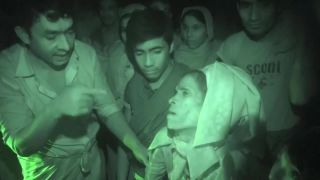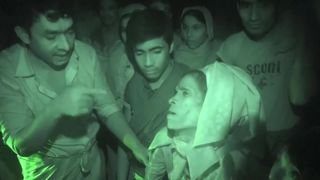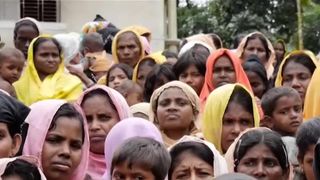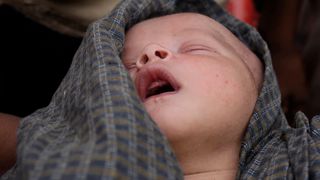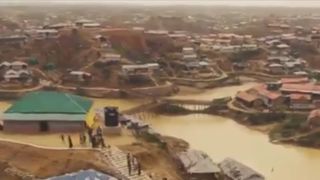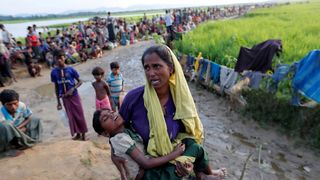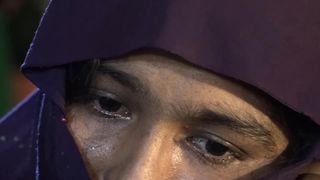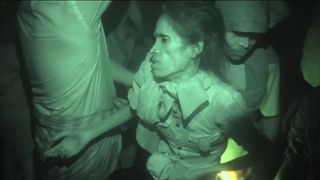Myanmar’s top generals must be prosecuted for genocide over the treatment of the Rohingya, according to a UN report.
Six generals should be tried over orchestrated gross human rights violations and abuses in Kachin, Rakhine and Shan states, an independent fact-finding mission found.
Hundreds of thousands of minority Rohingya Muslims fled across the border from Myanmar to Bangladesh after what many NGOs have described as ethnic cleansing.
Amnesty International said security forces carried out a “targeted campaign of widespread and systematic murder, rape and burning”.
:: Explained – The Rohingya refugee crisis
The UN report called for the alleged crimes to be investigated by the International Criminal Court (ICC) in The Hague.
However, Myanmar is not a signatory to the Rome Statute that established the court – so a referral would need Security Council approval. It is unclear whether China would agree.
The report says that instead an ad hoc body could be established to conduct prosecutions.
:: Rohingya babies dumped and left to die in Myanmar crisis
“Military necessity would never justify killing indiscriminately, gang raping women, assaulting children, and burning entire villages,” the report says.
“They are shocking for the level of denial, normalcy and impunity that is attached to them.
“The Tatmadaw’s contempt for human life, integrity and freedom, and for international law generally, should be a cause of concern for the entire population.”
The report goes on to state that “the manner in which” the alleged crimes in Rahkine were “perpetrated, are similar in nature, gravity and scope to those that have allowed genocidal intent to be established in other contexts”.
Myanmar’s military denies the claims.
The commander-in-chief of Myanmar’s armed forces, called the Tatmatdaw, Senior-General Min Aung Hlaing, was among those singled out in the allegations. Five other military commanders are also named in the report.
The report also accuses the head of government Aung San Suu Kyi of failing to prevent the violence.
:: Satellite images ‘prove Rohingya villages were burned’
So far, despite numerous ongoing investigations, the ICC has convicted only three living people, none of whom for genocide.
Several ethnic Serbs involved in the Balkan wars were convicted of genocide, as well as other crimes, by the Hague-based International Criminal Tribunal for the Former Yugoslavia, and received various sentences.
The UN report states that the “exodus” of the Rohingya was sparked when an Rohingya insurgent group called ARSA led attacks on military and security outposts across northern Rakhine State on 25 August 2017 – and the army responded with massive force.
The mission said the retaliation took place in a climate that had been fostered by hate speech, providing an example from November 2012 when “a leading Rakhine political party cited Hitler, arguing that ‘inhuman acts’ were sometimes necessary to ‘maintain a race'”.
While the team compiling the report was never granted access to Myanmar, their evidence came from primary sources, including 875 in-depth interviews with victims and eyewitnesses, satellite imagery, photographs and videos.
Amnesty International said a criminal investigation was now required and the UK and EU both said those responsible for the violence must be held to account.
Tirana Hassan, Director of Crisis Response, said: “The UN Security Council must refer the situation in Myanmar to the International Criminal Court as a matter of urgency. Until it does, it’s vital that countries establish a mechanism through the UN to collect and preserve evidence for use in future criminal proceedings.”
From – SkyNews

